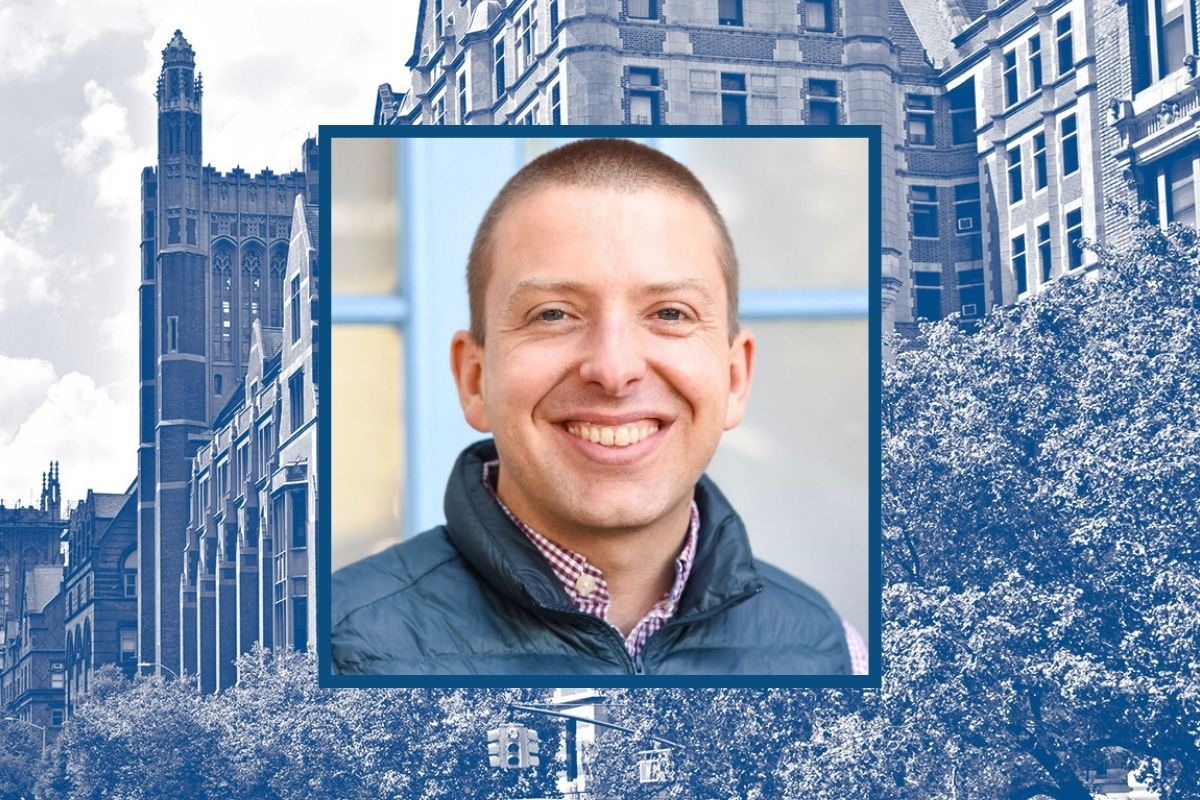An epiphany launched Episcopal priest — and ’22 TC graduate — Kyle Oliver along the path to recasting spirituality, faith and religious observation in significant ways.
“[Organized religion] had a model that assumed people would show up every week at the same time at the same place. Which is not true anymore,” Oliver noted by way of background.
“Which is why, since my ordination and before, I’ve been looking for ways for religious educators to be innovative by making use of digital tools to give people opportunity to reflect on their faith in a way that isn’t just limited to their time at Sunday School or church.”
The search for ways to unfurl religion beyond sanctuary walls ultimately put Oliver on a doctoral path in a TC program that leverages technology to expand the boundaries of human interaction and understanding: Communication, Media and Learning Technologies Design (CMLTD).
Practicing what he preaches, Oliver turned a four-part nonfiction podcast into the centerpiece of his dissertation.
In “Becoming Tapestry,” Oliver traces how a team of mentors and tech workers with a West Coast non-profit serving foster youth, created a “church that doesn’t look like a church.”
“[This] community practices hope, recreation, presence and communion,” he explains. “All are rich religious terms deployed in a setting that is not religious, but invites community members to make spiritual meaning of their experiences.”
“The visibility of faith as community is what informs ‘Tapestry.’ It isn’t religious education, per se, but rather meaning-making in a faith adjacent space.”
Produced with support from with the Media & Social Change Lab (MASCLab), “Becoming Tapestry” exemplifies ethnographic research in the context of interdisciplinary, digital story-telling — a combination Oliver envisions as a pillar of 21st Century faith and organized religion.
A religious vocation in a conventional space, much less a digital one, was not on the agenda when Oliver arrived at the University of Wisconsin-Madison as a nuclear engineering major.
But as four years of undergraduate studies extended to the pursuit of a graduate degree, his involvement in the Episcopal campus ministry he’d joined as a sophomore grew into responsibilities that provided Oliver a glimpse of “what it might be like to lead a spiritual community.”
A campus chaplain took notice by suggesting Oliver “had a gift for the ministry.” She was right.
“God was telling me to do something different. Sixteen months later, I rolled into Alexandria,” said Oliver — the rare, if not only, student to arrive at the Virginia Theological Seminary with undergraduate and advanced degrees in nuclear engineering.
Oliver completed his doctoral studies while living in California and other locales. He now resides in suburban Chicago, where his wife — also an Episcopal priest — leads a congregation.
For Oliver, the next step in the journey is in the capacity of Chief Product Officer for Learning Forte, a start-up that advises, trains and helps faith communities integrate digital technology into the evolving definitions of faith and service.
Tapestry, the non-profit at the center of the podcast dissertation, in many ways serves as a blueprint for the perspective Oliver brings to the company.
“We should no longer assume that everyone is a believer,” he says. “So, let’s focus on community belonging first and trust that the believing part may follow.”
